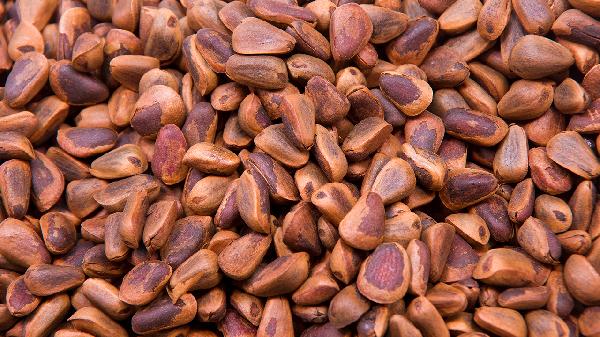Apple cider vinegar is one of those wellness trends that just won’t quit—partly because it’s been around for centuries, and partly because people swear by its benefits, even if it tastes like a sour punch to the face. But is it actually good for you? The short answer: yes, but with some caveats. Apple cider vinegar (ACV) isn’t a miracle cure, but when used correctly, it can support digestion, blood sugar regulation, and even weight management. That said, chugging it straight from the bottle isn’t the move—unless you enjoy burning your throat and eroding your tooth enamel.
The Science Behind Apple Cider Vinegar
The magic in ACV comes from acetic acid, the compound responsible for its sharp taste and many of its health perks. When you consume it, acetic acid increases stomach acidity, which helps block enzymes that break down glucose. This means fewer blood sugar spikes after meals—a big win for anyone managing insulin resistance or type 2 diabetes. It also slows gastric emptying, keeping food in your stomach longer, which can help you feel fuller and curb cravings. Registered dietitian Melanie G. Murphy Richter explains that this delayed digestion is key to ACV’s blood sugar benefits, as it prevents glucose from flooding your system all at once.
Potential Health Benefits of ACV
Beyond blood sugar control, ACV has a laundry list of potential upsides—though not all are backed by robust research. Here’s what the science says so far:
Better Nutrient Absorption
The increased stomach acidity from ACV helps break down food more efficiently, which means your body can absorb nutrients like iron, calcium, and B vitamins more effectively. If you’re someone who struggles with low stomach acid (common in older adults or people on acid-reducing meds), a little ACV before meals might give your digestion a boost.
Immune System Support
A highly acidic stomach environment isn’t just great for digestion—it’s also a frontline defense against harmful bacteria and pathogens. Richter notes that ACV’s low pH can help fend off unwanted microbes, indirectly supporting immune function. That said, don’t expect it to replace your flu shot.
Appetite Control and Weight Management
If you’ve ever taken a shot of ACV before a meal and noticed you’re less hungry afterward, there’s a reason for that. The slowed gastric emptying means food sticks around longer, reducing the urge to snack. Some studies also suggest ACV activates AMPK, an enzyme that helps regulate metabolism and fat storage. But before you start guzzling vinegar to drop pounds, keep in mind that it’s no substitute for a balanced diet and exercise.
Gut Health Perks
While research is still emerging, ACV’s antimicrobial properties may help balance gut bacteria by knocking out harmful microbes while leaving the good ones alone. Richter points out that this could be especially helpful for people dealing with minor digestive issues, though those with serious gut conditions should proceed with caution.
Heart Health Boost
Some studies suggest ACV might help lower LDL (bad) cholesterol and triglycerides, which could translate to better heart health over time. Richter explains that this effect likely ties back to improved blood sugar regulation, since unstable glucose levels can contribute to cardiovascular issues. Still, don’t ditch your statins for vinegar just yet—more research is needed.
The Not-So-Great Side of ACV
As with any wellness trend, ACV isn’t without its downsides. Here’s what to watch out for:
Medication Interactions
If you’re on blood sugar-lowering meds (like insulin or metformin), diuretics, or heart medications, ACV could mess with their effectiveness. Meshulam warns that combining ACV with diabetes drugs, for example, might cause blood sugar to drop too low—a dangerous scenario. Always check with your doctor before adding ACV to your routine.
Potassium Depletion
Overdoing ACV can lead to hypokalemia, a condition where potassium levels dip too low. Symptoms include muscle cramps, weakness, and irregular heartbeats. If you’re already on diuretics (which can lower potassium), this risk increases, so tread carefully.
Stomach and Esophagus Irritation
ACV’s high acidity can aggravate conditions like GERD, ulcers, or general stomach sensitivity. Richter recommends starting with small doses and diluting it well to minimize discomfort. If you experience heartburn or nausea, it might not be the right supplement for you.
How to Take ACV Without Destroying Your Teeth (or Taste Buds)
Here’s the golden rule: never drink ACV straight. Meshulam emphasizes diluting one tablespoon in 8 ounces of water, tea, or another liquid to protect your stomach and enamel. Using a straw can further shield your teeth, and rinsing with water afterward helps neutralize any lingering acid. If you’re new to ACV, Richter suggests starting with just a teaspoon daily and gradually working up to a tablespoon before meals. For those who can’t stand the taste, capsules or gummies are a decent alternative—just check the label for added sugars or fillers.
At the end of the day, apple cider vinegar is a tool, not a cure-all. It can support digestion, blood sugar, and even weight management when used wisely, but it’s not a substitute for a healthy lifestyle. If you’re curious, start slow, listen to your body, and—for the love of your tooth enamel—always dilute it.
























